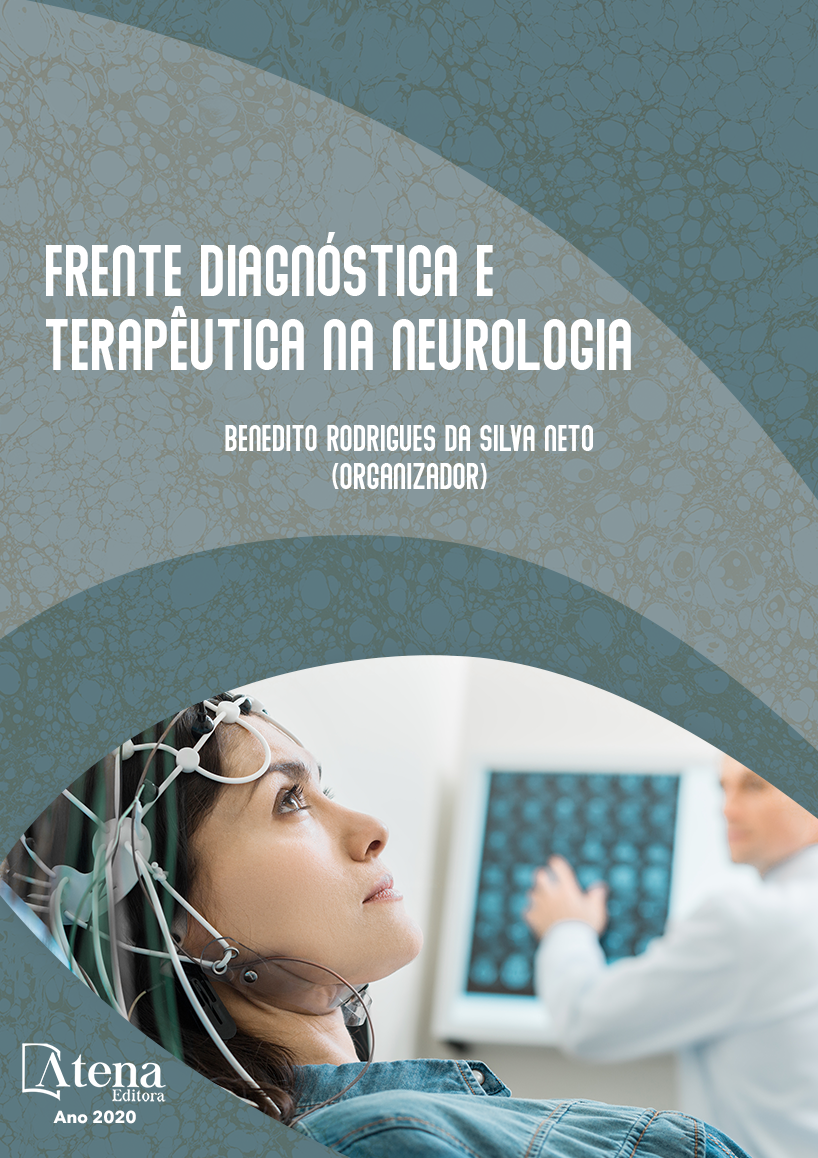
NEUROINFLAMAÇÃO NA PERPETUAÇÃO DA EPILEPSIA DO LOBO TEMPORAL ASSOCIADO A ESCLEROSE HIPOCAMPAL (ELT-EH)
Introdução: Epilepsia mesial do lobo
temporal é o tipo mais freqüente de epilepsia
do lobo temporal (ELT), e está principalmente
relacionada com esclerose hipocampal (ELTEH).
A participação de mecanismos inflamatórios
na ELT-EH foi e continua sendo estudada por
diversos autores. Entre os eventos cruciais
para esse fenômeno inflamatório se perpetuar
no SNC estaria à vulnerabilidade da barreira
hemato-encefálica (BHE) e a ativação de
moléculas pró-inflamatórias com a participação
da imunidade inata e adaptativa. O processo
inflamatório estaria envolvido na refratariedade
ao tratamento medicamentoso. Objetivo:
Demostrar a importância dos mecanismos
inflamatórios na perpetuação da ELT-EH.
Método: Revisão bibliográfica. Resultados:
Foi demonstrado a associação de IL1 beta
com o desenvolvimento de ETL-EH. Estudo
utilizando imunohistoquímica de hipocampos
obtidos em cirurgias de pacientes com ELT-EH
mostrou aumento da expressão de IL1 beta nas
células astrocitárias. Em pacientes submetidos
a cirurgia da ELT-EH, foi demonstrada a
diminuição no soro dos níveis de fator necrose
tumoral alfa (TNF-alfa), interleucina 1 beta (IL-
1β) e proteínas inflamatórias de macrófagos
(MIP-1α/CCL3), confirmando em humanos a
participação destas citocinas na perpetuação
das crises na ELT-EH. Corroborando com
esses achados, pacientes com epilepsia
fármaco resistente têm níveis mais altos de
citocinas no soro, principalmente IL6 em relação
aos pacientes controlados. Estudo recente
confirma esse achado, demostrando que além
de IL6, o TNF alfa e a IL-1 β estavam mais
elevados no soro de pacientes com ELT-EH em
comparação com pacientes com epilepsia extra
temporal e controle saudáveis. Conclusão: Os
mecanismos inflamatórios parecem ter uma
participação importante na ELT-EH.
NEUROINFLAMAÇÃO NA PERPETUAÇÃO DA EPILEPSIA DO LOBO TEMPORAL ASSOCIADO A ESCLEROSE HIPOCAMPAL (ELT-EH)
-
DOI: 10.22533/at.ed.57820280113
-
Palavras-chave: Epilepsia Mesial Temporal, Inflamação, Imunidade
-
Keywords: Mesial Temporal Epilepsy, Inflammation, Immunity
-
Abstract:
Introduction: Mesial temporal
lobe epilepsy is the most frequent type of
temporal lobe epilepsy (TLE), and is mainly
related to hippocampal sclerosis (TLE-HS). The
participation of inflammatory mechanisms in
TLE-HS has been and continues to be studied
by several authors. Among the crucial events for
this inflammatory phenomenon to perpetuate in the CNS would be the vulnerability
of the blood-brain barrier (BBB) and the activation of proinflammatory molecules with
the participation of innate and adaptive immunity. The inflammatory process would be
involved in refractoriness to drug treatment. Method: Bibliographic review. Objective:
To demonstrate the importance of inflammatory mechanisms in the perpetuation of
TLE-HS. Results: The association of IL1 beta with the development of TLE-HS was
demonstrated. A study using hippocampal immunohistochemistry obtained in surgeries
of patients with TLE-HS showed increased expression of IL1 beta in astrocyte cells.
In patients undergoing TLE-HS surgery, serum levels of tumor necrosis factor alpha
(TNF-alpha), interleukin 1 beta (IL-1β), and macrophage inflammatory proteins (MIP-
1α / CCL3) levels have been demonstrated. confirming in humans the participation of
these cytokines in the perpetuation of seizures in TLE-HS. Corroborating these findings,
patients with drug resistant epilepsy have higher serum cytokine levels, particularly IL6
compared to controlled patients. A recent study confirms this finding, demonstrating that
in addition to IL6, TNF alpha and IL-1 β were higher in serum from patients with TLE-HS
compared to patients with healthy extra-temporal epilepsy and control. Conclusion:
Inflammatory mechanisms seem to play an important role in TLE-HS.
-
Número de páginas: 7
- Wagner Gonçalves Horta


